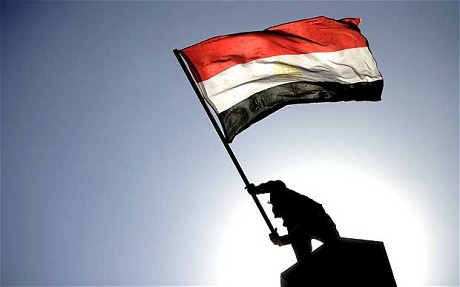
This year, the certitudes of the old Middle East dissolved with unseemly haste. A regional order frozen in place since the death of Egypt’s Colonel Nasser 40 years ago finally thawed. It produced a torrent of uprisings, coups, standoffs, civil wars, and an orgy of state-sponsored bloodletting. This was the earthquake; in 2012, prepare for the aftershocks. But revolution is not, and has never been, an event. It is a project, and one whose gestation spans not months, or even years, but decades.
The raw violence of the Arab awakening is uncomfortable for those of us accustomed to a different sort of revolution. This month, Vaclav Havel died. His was the era of the pure revolution. The dissolution of the Soviet empire in Europe, and Havel’s ascent to the Czech presidency, was tidier than we had any right to expect. It was the age of prison-to-presidency leaps by distinguished statesmen, not undignified rabbles. Today, we confront slow-burning revolutions of barbed wire and blood, not velvet.
In Egypt, the army began the year as saviour of the revolution; it ended it as tormentor. Soldiers who once milled around Tahrir Square, posing on tanks for photographs with revolutionaries, now batter their compatriots on the same stretch of pavement. It’s tempting to call this the uprising’s Thermidor – the term given to the French Revolution’s period of retreat. The French had their “Directory”, a five-man executive body to calm things down; the Egyptians have SCAF – the Supreme Council of the Armed Forces. But there is no Egyptian Robespierre, and in 2012 it will be the army’s own reign of terror that needs curbing.
Egypt’s new parliament, dominated by the moderate Muslim Brotherhood, will be the arena of next year’s struggles. The army, desperate to lock its political and economic privileges into any new constitution, will try to bully and cajole the Islamists into creating a “managed democracy”. This seems clever. After all, the liberals have been wiped out. The Brotherhood are keen not to rock the boat. And many Egyptians are fed up with protests. But it won’t work. The Brotherhood may be illiberal and cautious, but they’re not stupid. They will eventually use their new mandate to squeeze out the army, resulting in another wave of violence. This is the protection racket: it’s us, or chaos.
In the summer, barring a civil war, Egypt will elect a new president. Amr Moussa, the former head of the Arab League, could be propelled to victory. Moussa is slick, pragmatic and opportunistic – think Blair, not Havel. But, as the president takes office, Egypt’s perilous economy will catch up with its politics. Ballooning debt, dangerously thin foreign exchange reserves, and stagnating growth will produce a fresh crisis. Egyptians, exhausted by permanent revolution, will be ruled by a state in a four-way standoff, pitting protesters, parliament, presidency and generals against each other. This is the way the revolution ends: not with a bang but a whimper – for now.









